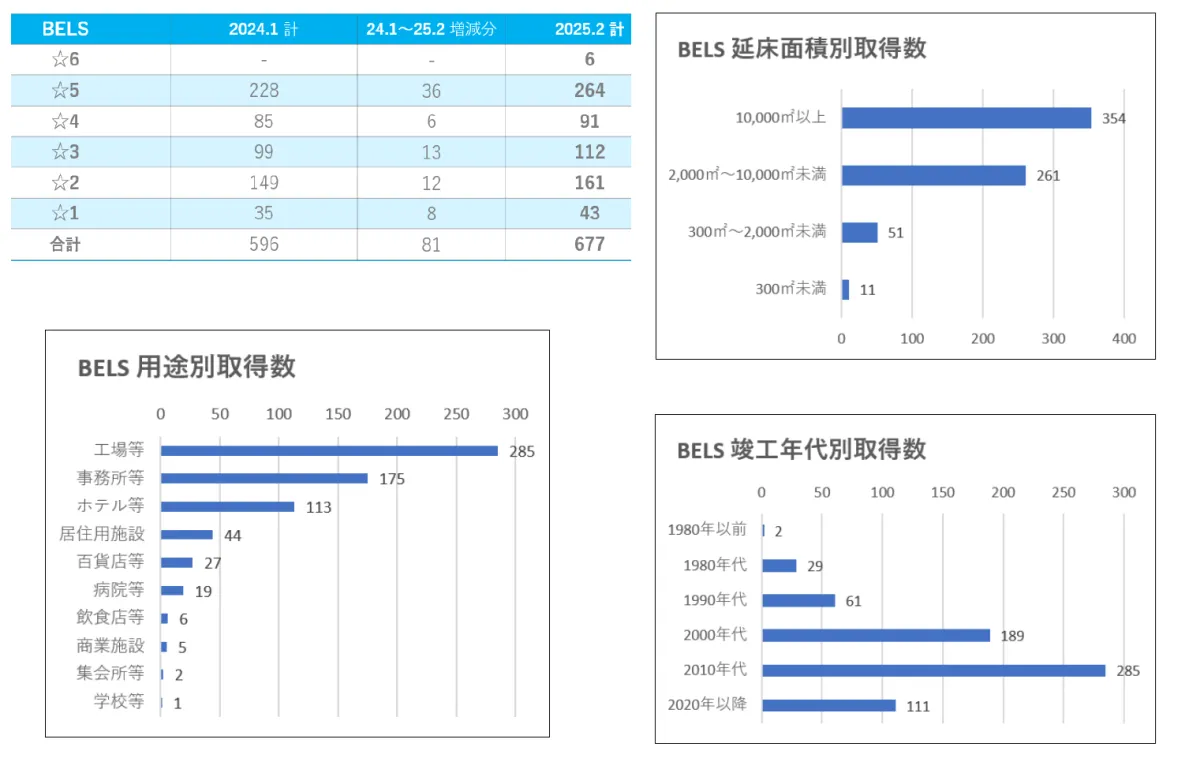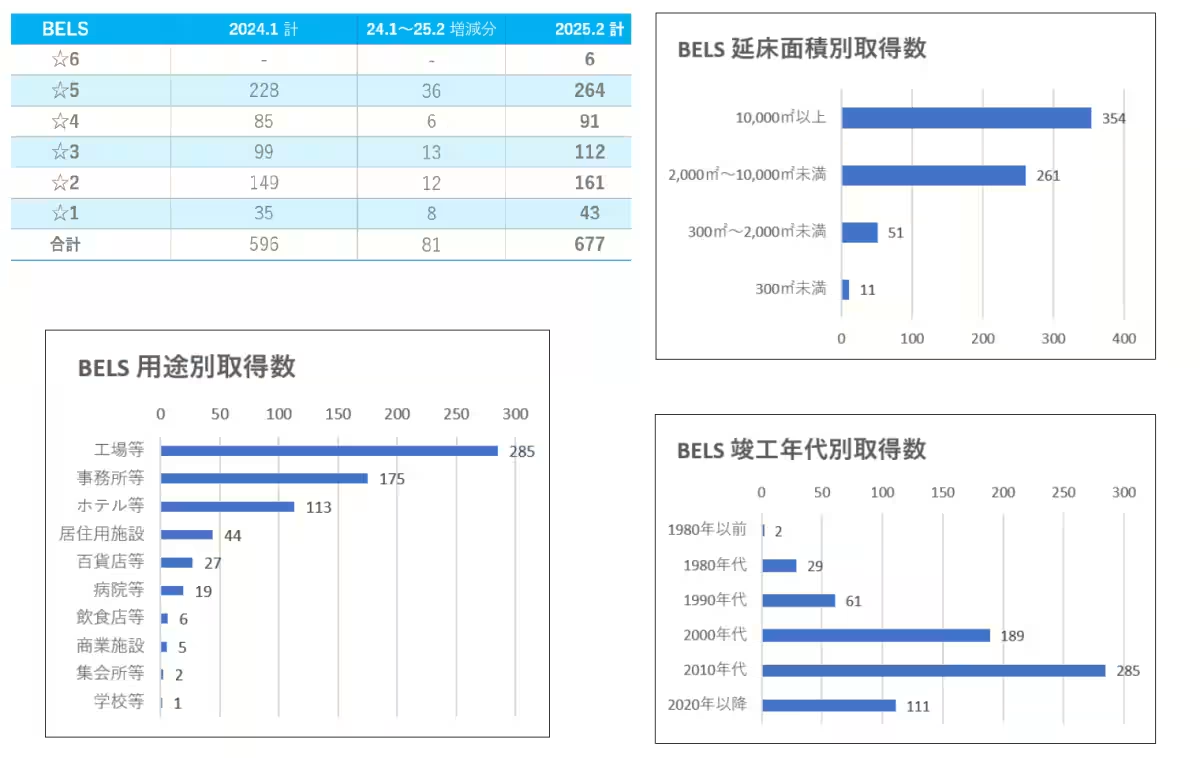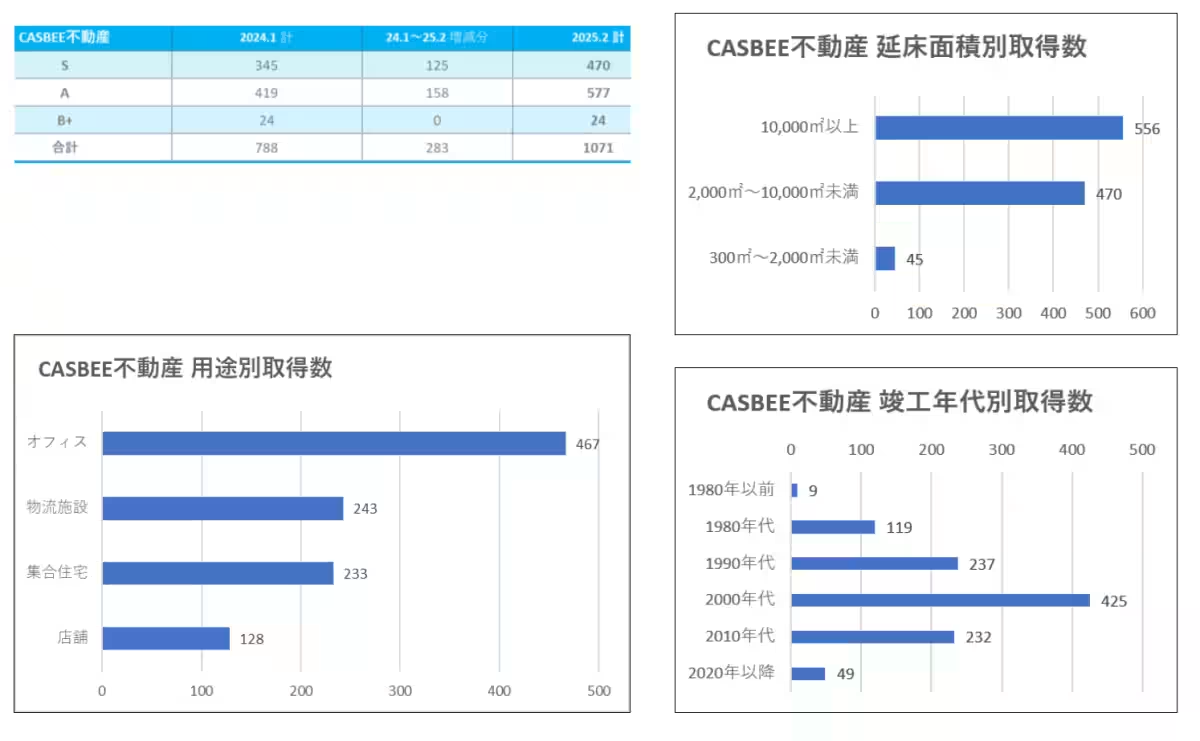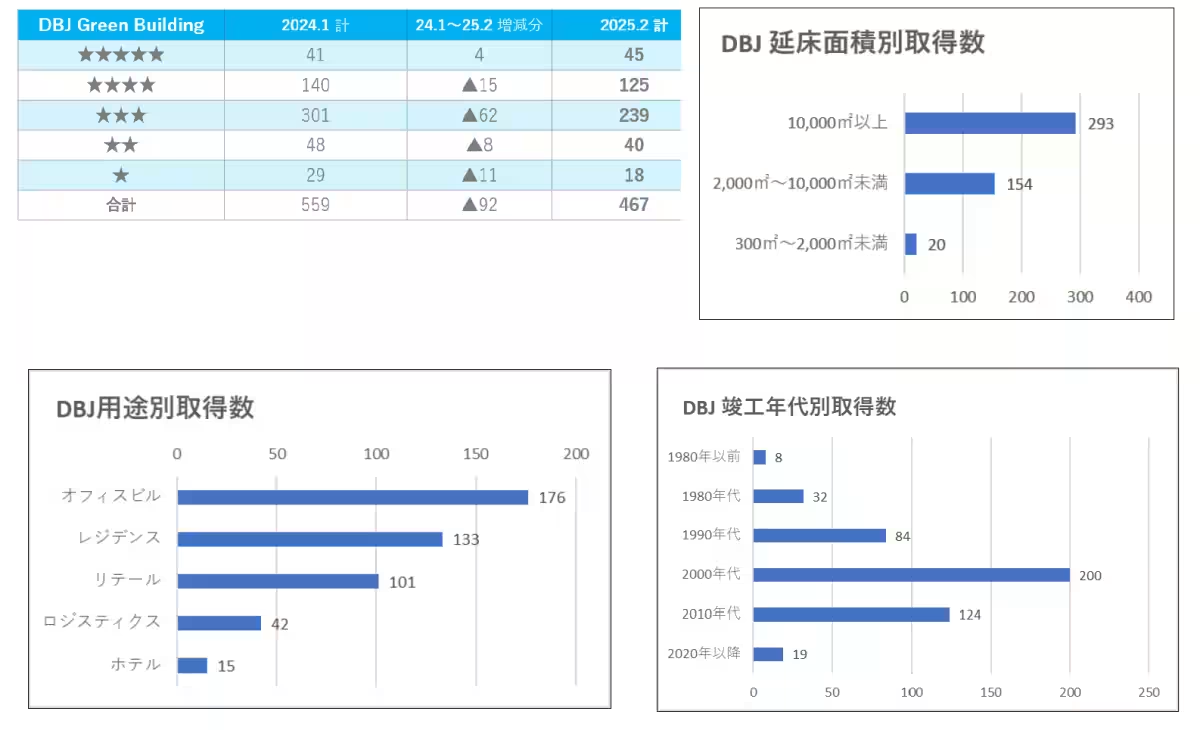

Recent Trends in Environmental Performance Certification for J-REITs Revealed by New 2025 Survey
Trends in Environmental Certifications for J-REITs
A comprehensive investigation by the Environmental and Energy Efficiency Calculation Center has unveiled crucial insights into the environmental performance certifications obtained by Japan's 57 J-REITs. This study, titled J-REIT Environmental Performance Evaluation and Certification Status Survey 2025, evaluates the number of properties with major certifications: BELS, CASBEE, and DBJ Green Building.
The data showcased an increase in certifications with a total of 2,215 certifications, reflecting a growth of 113% (272 more certifications) compared to the previous survey conducted in January 2024. This surge indicates a conscious trend among J-REITs towards acquiring these certifications, driven by various factors including environmental compliance and market demand.
Understanding the Certifications
BELS (Building-Housing Energy-efficiency Labeling System) evaluates the energy consumption of buildings on a scale of 5 or 7 levels, depending on whether renewable energy systems are in place. With a total of 677 BELS certifications, the increase of 81 from the previous year suggests a continued commitment to energy-efficient building practices among J-REITs.
CASBEE (Comprehensive Assessment System for Built Environment Efficiency) is another pivotal evaluation metric, emphasizing not just energy efficiency but also the overall quality of the built environment, including indoor comfort and aesthetics. The study noted a notable rise in CASBEE certifications, particularly within the residential sector, which saw an increase of 140 certifications, totaling 1,071.
DBJ Green Building certifications, established by the Development Bank of Japan to support environmentally conscious properties, showed a decline to 467 certifications, primarily due to properties transitioning to CASBEE certifications as their 3-year validity expired. This shift indicates a trend where businesses prefer the longer validity offered by CASBEE.
Methodology and Findings
The survey methodology involved collecting data published on each J-REIT's website. Items analyzed included certification rank, utilization (office, residential, commercial, etc.), total floor area, and completion years.
- - In BELS, the study revealed that the certification count remained stable in its ranking distribution, with no significant changes in the overall trend. Particularly, the appeal for the new BELS rating system introduced in April 2024 resulted in only 6 properties achieving the elusive 6-star rating.
- - The CASBEE data represented a marked increase in certifications across various use cases, especially for mixed-use developments. However, it's noteworthy that the new hotel-focused version of CASBEE and the additional wellness office category are anticipated in 2024, prompting interest in future trends.
- - The GRESB real estate evaluation system, which ranks J-REITs based on ESG factors, indicated an increase of 12 companies in ranks while 8 witnessed rank downgrades. This fluctuation highlights the competitive nature of environmental performance within the real estate sector.
Future Implications
As we move forward, the findings suggest a proactive stance from J-REITs in adopting various environmental certifications to comply with evolving regulations and market expectations. There’s a clear focus on maximizing the benefits of certifications, particularly BELS and CASBEE, which cater to longer operational timelines and sustainability mandates.
Conclusion
The Environmental and Energy Efficiency Calculation Center remains committed to continuous research and advocacy for sustainable building practices within the real estate market. Led by CEO Keisuke Onoshi, the center provides feedback and facilitates access to certifications to enhance building performance sustainably. Given the recent trends, it is likely that the J-REIT sector will continue to pursue these certifications vigorously, ensuring that sustainability becomes a cornerstone of Japan's real estate landscape.





Topics Environment)










【About Using Articles】
You can freely use the title and article content by linking to the page where the article is posted.
※ Images cannot be used.
【About Links】
Links are free to use.